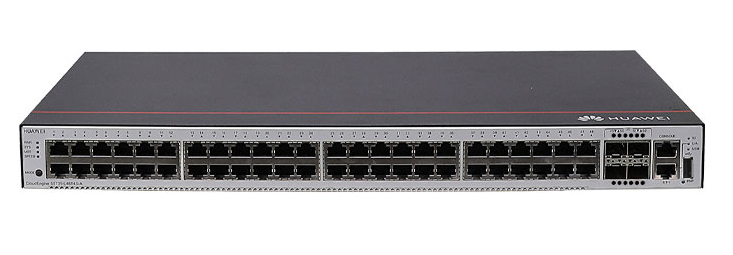































How can I make sure my skills stay relevant in my industry?|?YouTube What skills are most in-demand for the job I have now -and the job I want in three years?
At Learn with Cisco, these are the questions we hear all the time. And advances in AI put pressure on all of us to find the answers quickly. The pace of technological change has recently become so fast that even people at the very top of their fields are wondering about the skills they'll need to be effective tomorrow.
Our mission is to provide access to a full range of technical skills: from those that allow beginners to participate in the modern economy all the way through to those that help experts with decades of experience continue to innovate.
At Cisco, we've taken a multi-pronged approach to understanding which skills are and will remain most relevant. We founded the AI-Enabled ICT Worker Consortium, which conducts original research on the effects of AI on 47 specific job roles. We published a white paper investigating which technology-related skills are most uniquely human, and which will benefit most from AI. We dig into the research of third parties, such as the World Economic Forum. And we use AI to analyze massive quantities of job postings and identify in-demand and up-and-coming skills. We bring all this information together to update and augment our courses, our blueprints, and the learning paths that lead to certifications.
The upshot: We've found that networking and cybersecurity skills, already in high demand, will become even more relevant, and that's partly because of AI. Here's how the World Economic Forum ranks the top three skills that will be most in-demand over the next five years:
For IT professionals, these are bound together. No one is asking for an insecure network. And as malicious actors increasingly use AI to launch cyberattacks, we won't be able to defend our networks without using AI.
I'd add another crucial skill, which is critical thinking. The World Economic Forum didn't ask specifically about this skill, although "analytical thinking" was ranked 9th. But as AI increasingly helps us with the "what" and the "how" of our world, the ability to understand the "why" -to think critically about our work - only becomes more important.
Let's take a closer look at cybersecurity and networking.
We're facing a severe talent shortage in cyber security. Globally, there is a need for about 3.5 million additional cybersecurity professionals, and about 500,000 of those are in the U.S.
Just like other jobs, cybersecurity jobs are changing. We're seeing less demand for roles such as network security engineers, because automation can accomplish some of those tasks. We're seeing more demand for positions such as red teamers -29% more in the past year -as well as for cyber threat intelligence analysts. This is part of the reason our certificate in ethical hacking has become so popular.
Networking is also going to be increasingly important. That's related to the need for security: You can't secure something if you don't understand it. A security pro without a strong foundation in networking is trying to protect a house without knowing where the windows and doors are.
And existing network engineers now need to improve their security skills. That starts with embedding security into network design and operations, and implementing security controls from the ground up. These same skills are needed for in-demand roles such as network reliability engineers and site reliability engineers.
I've said many times that continuous learning is key to a successful career in IT -or frankly, any career. And AI gives all of us lots to learn -even those of us at the expert level.
Let's take a more detailed look at the skills that expert-level IT professionals, in particular, will find most necessary as AI becomes more integrated into our networks and our lives.
First are skills specific to AI. Some of these skills are foundational, and others are specific to IT operations. These include:
Then there is security, as I mentioned above. Expert level security skills will include:
Now, combine these skills with automation skills, such as scripting with Python, the ability to use tools such as Ansible, and the experience working with APIs. Then you're looking at the ability to programmatically manage and protect complex networks, and to move forward with a NetDevOps framework.
We also know that AI on the network is making an impact: more than half of expert-level network engineers say they're seeing the effects of AI on their infrastructure. That means expert network engineers need to know how to design, build, and manage the high-performance network infrastructures that AI workloads demand. They'll do this by becoming proficient in skills such as:
AI also forces us to look more closely at so-called soft skills. For many technologists, that may mean working more closely with, and strategizing with, business teams. Network engineers with excellent communications and analysis skills will be well-positioned to champion the technical solutions that will best deliver on business needs. These specific skills will help facilitate this shift in focus:
If this seems like a lot of change, it is. A generation ago, the half-life of skills was about ten years. If you learned a new skill, half the value of that skill would evaporate in ten years. It's not that your skills would get rusty. It's that the world changes.
Now the half-life of skills is closer to five years. For technical skills -the ones that matter to IT professionals and those wanting to enter the industry - it's even shorter. Maybe three years.
The good news is that, for our community, continuous learning is not a new muscle that needs to be acquired. Yes, the skills are different: Maybe you were doing leg presses before and now you're doing lunges. But you've been working out. You know the drill.
And frankly, we know the drill too. We've been providing access to skills and learning materials for decades; Cisco's very first CCNA certification dates from 1998. And we're moving more quickly than ever to make sure you can learn the new skills that will help you future-proof your career.
We're focusing on the new skills that matter, with the full understanding that it's not useful or productive to chase every trend. That's why we've embedded AI skills into our core tracks across Cisco Networking Academy, DevNet, and Cisco U., showing you how to apply those skills to areas such as security, automation, and troubleshooting.
At Learn with Cisco, we're on a journey of continuous learning, just as you are. And we're excited to see where it brings us.
Sign up for Cisco U. | Join the? Cisco Learning Network?today for free.| Join the? Cisco Learning Network?today for free.
Learn with Cisco
X?|?Threads | Facebook?|?LinkedIn?|?Instagram|?Threads | Facebook?|?LinkedIn?|?Instagram?|?YouTube
Use? #CiscoU and #CiscoCert?to join the conversation.
 Hot Tags :
Cisco Certifications
Cisco Learning Network
Cisco U.
Hot Tags :
Cisco Certifications
Cisco Learning Network
Cisco U.